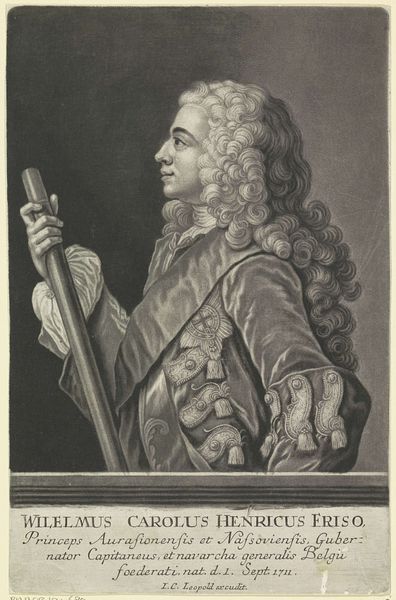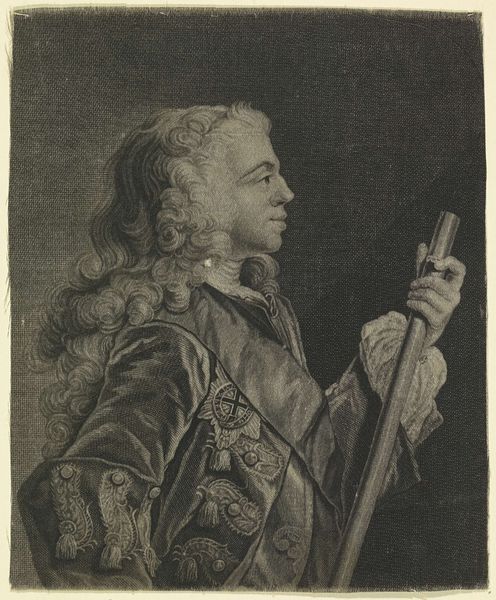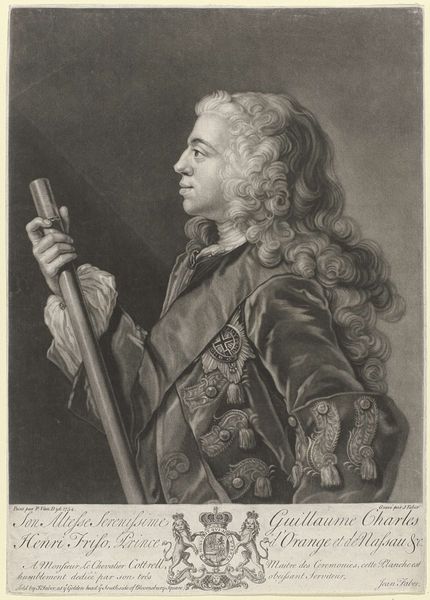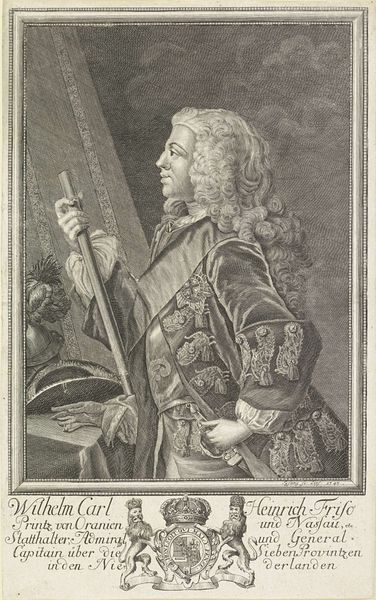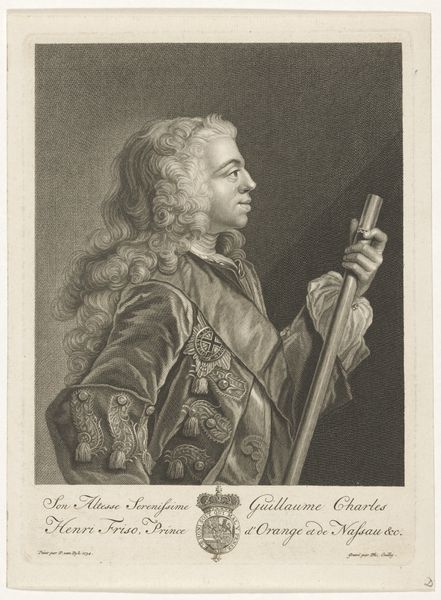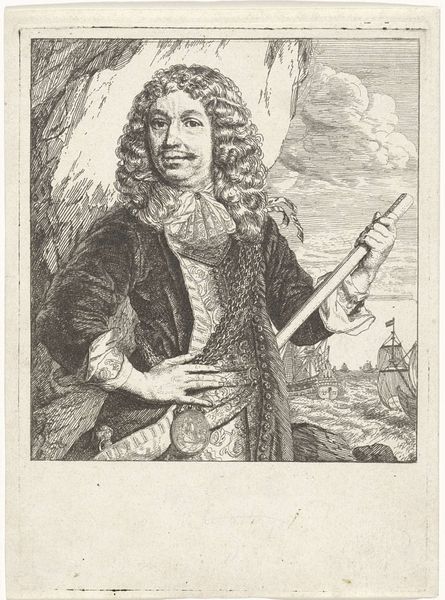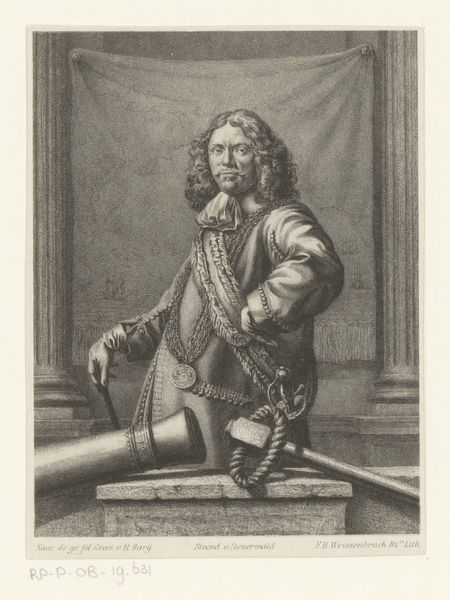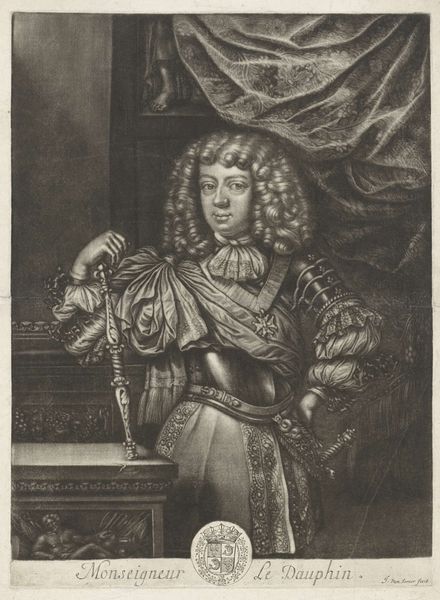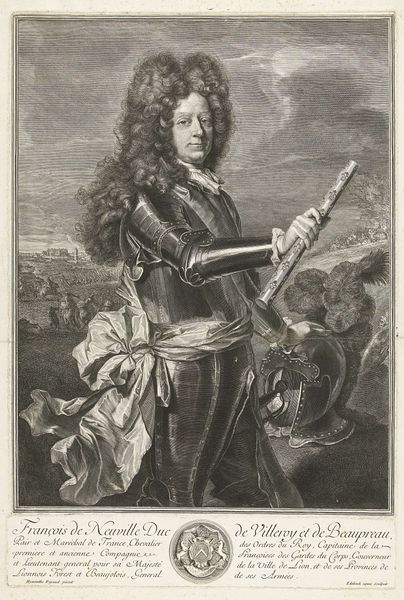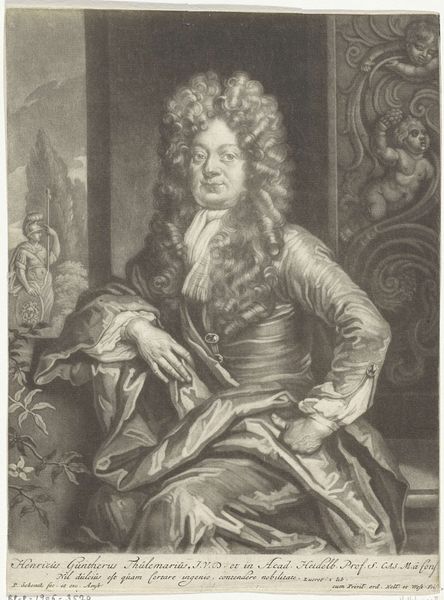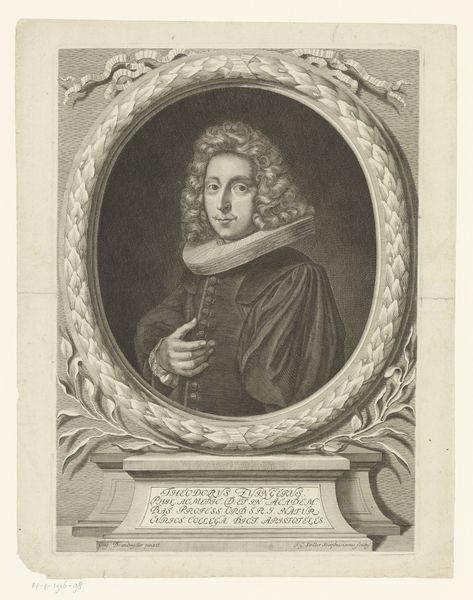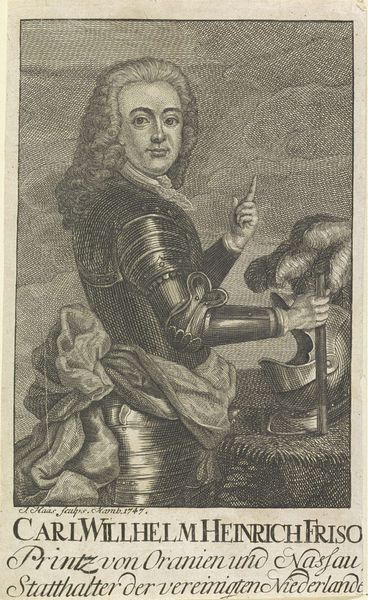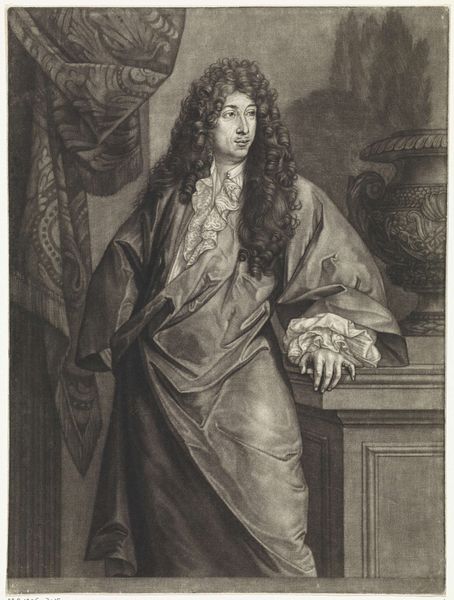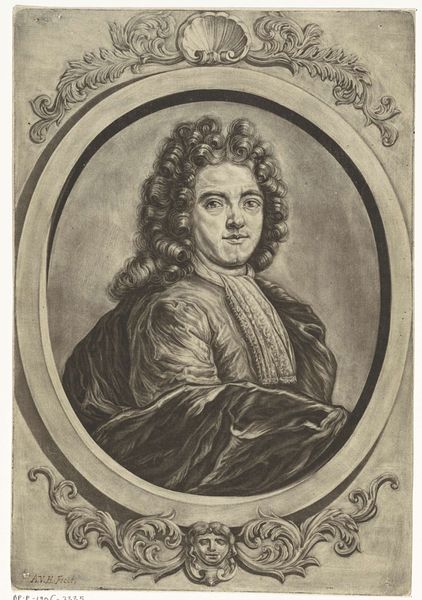
print, engraving
#
portrait
#
baroque
# print
#
figuration
#
line
#
history-painting
#
engraving
Dimensions: height 302 mm, width 197 mm
Copyright: Rijks Museum: Open Domain
This engraving portrays Willem IV, Prince of Orange-Nassau, capturing him with a baton of command. This baton is not merely a staff, but a scepter of authority, laden with the weight of governance and ancestral power. The baton's significance transcends this single portrait. We observe its echoes in ancient Roman depictions of emperors holding sceptres, symbols of their dominion and the right to rule. But even further back, we see the symbol of the staff in the hands of priests and shamans as a sign of leadership. Over time, the baton has resurfaced, transforming from a primitive tool to an emblem of refined power. Such symbols tap into our collective memory, evoking a profound sense of order, control, and the enduring human desire for leadership. This primal connection is what gives the baton its potent, almost subconscious, effect. It’s a cyclical, non-linear progression of a symbol.
Comments
No comments
Be the first to comment and join the conversation on the ultimate creative platform.
